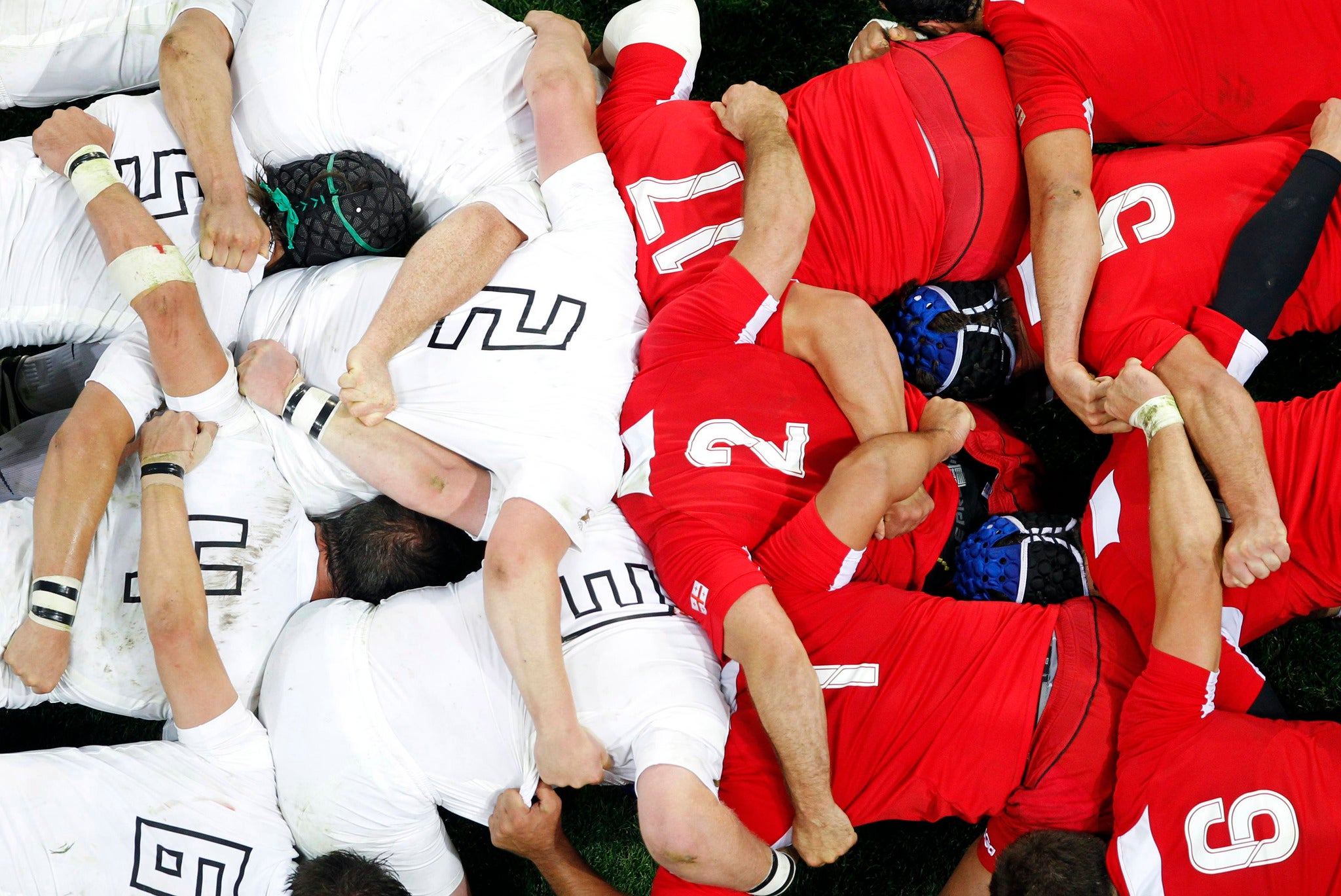Rugby players risk infectious skin condition by swapping bacteria on shared razors and towels
Public Health England (PHE) is warning those who play contact sports not to share items that could spread infection

Your support helps us to tell the story
From reproductive rights to climate change to Big Tech, The Independent is on the ground when the story is developing. Whether it's investigating the financials of Elon Musk's pro-Trump PAC or producing our latest documentary, 'The A Word', which shines a light on the American women fighting for reproductive rights, we know how important it is to parse out the facts from the messaging.
At such a critical moment in US history, we need reporters on the ground. Your donation allows us to keep sending journalists to speak to both sides of the story.
The Independent is trusted by Americans across the entire political spectrum. And unlike many other quality news outlets, we choose not to lock Americans out of our reporting and analysis with paywalls. We believe quality journalism should be available to everyone, paid for by those who can afford it.
Your support makes all the difference.Rugby players can be said to share a lot of things, from banter to bar tabs, but its bacteria that has led a governmental health agency to warn of the spread of skin infection via the communal use of towels, razors and ice baths.
Public Health England (PHE) has issued a warning to those engaged in contact sports following an investigation into the spread of a condition called PVL-MSSA at an unnamed South Midlands rugby club.
The infection causes boils, abscesses and carbuncles and can become flesh-eating and in the worst cases life-threatening.
It is a strain of bacteria known as Methicillin Sensitive Staphylococcus aureus, which produces a toxin called Panton-Valentine Leukocidin.
Four people at the club were found to have identical strains of the infection, leading experts to conclude that transmission must have happened through the sharing of objects or facilities.
PHE said that infection can also spread thanks to artificial grass ‘turf burns’, in which bacteria can “multiply and get into the body”.
The investigation took place over eight months until February 2014, with a number of players and staff swabbed and 59 surveyed.
Almost 20 per cent of players said that they regularly share towels, while 10 per cent said they share razors and five per cent swap clothes.
Thirty-seven per cent said that they usually have a cold bath after a game or training, while a third of respondents said they had suffered a skin condition in the last year.
According to PHE, there are between 1,200 and 1,500 cases of PVL-MSSA across the country annually, and the risks also apply to other contact sports such as wrestling.
Dr Deepti Kumar, a Consultant in Communicable Disease Control at PHE said: “PVL-MSSA can be a very serious infection and any positive result either for colonisation or active infection will require appropriate medical treatment not just of the patient but also of their close contacts or family.
“Because it can spread easily it is important to ensure that the correct procedures are in place to limit the spread of the bacteria.
“The investigation identified a number of high risk practices among the players which increase their chances of getting an infection, such as sharing towels and razors, and sharing ice baths with their fellow team members.
“We would urge any sportsperson who plays a sport where cuts and grazes are commonplace to practice good hygiene and not share any item with fellow team members to reduce their risk of developing an infection.”
Join our commenting forum
Join thought-provoking conversations, follow other Independent readers and see their replies
Comments